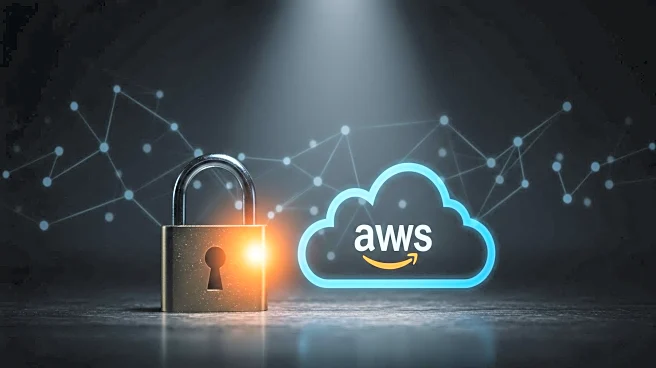What's Happening?
AWS has resolved a security vulnerability that allowed attackers to manipulate AWS Trusted Advisor into not flagging unprotected S3 buckets as a risk. Trusted Advisor is a tool designed to analyze AWS customers' environments and provide recommendations for improvements in areas such as cost, performance, and security. It includes several security checks, such as security group settings, IAM user access, multi-factor authentication, and S3 bucket permissions. The flaw was discovered by researchers at Fog Security, who found that attackers could bypass Trusted Advisor's S3 security check by setting bucket policies to deny certain actions like 's3:GetBucketAcl', 's3:GetPublicAccessBlock', or 's3:GetBucketPolicyStatus'. This manipulation could allow attackers to configure buckets with public and anonymous permissions without triggering an alert, potentially leading to data exfiltration. AWS was informed of the issue in early May, and a comprehensive fix was implemented by late June, following an incomplete patch in late May.
Why It's Important?
The resolution of this security flaw is crucial for AWS customers who rely on Trusted Advisor for maintaining secure cloud environments. The vulnerability posed a significant risk as it could have allowed unauthorized access to sensitive data stored in S3 buckets, potentially leading to data breaches. By addressing this issue, AWS reinforces its commitment to cloud security and helps prevent potential exploitation by attackers. This development underscores the importance of regular security audits and updates to cloud services, ensuring that vulnerabilities are promptly identified and mitigated. Customers are advised to review their S3 bucket permissions to align with security requirements, which is vital for safeguarding data integrity and privacy.
What's Next?
AWS has notified its customers about the vulnerability and provided documentation on S3 bucket permissions and blocking public access to S3 storage. Customers are encouraged to review their security settings and ensure compliance with best practices. AWS will likely continue to enhance its security measures and tools to prevent similar vulnerabilities in the future. The incident may prompt other cloud service providers to reassess their security protocols and tools to avoid similar issues. Additionally, AWS customers might increase their vigilance in monitoring and configuring their cloud environments to prevent unauthorized access.
Beyond the Headlines
This incident highlights the broader challenges of cloud security, particularly the complexities involved in managing permissions and access controls. It raises ethical considerations regarding the responsibility of cloud providers to ensure robust security measures and timely communication with customers about potential risks. The event may lead to increased scrutiny of cloud security practices and drive innovation in security technologies to address emerging threats. It also emphasizes the need for continuous collaboration between security researchers and cloud providers to identify and resolve vulnerabilities.









